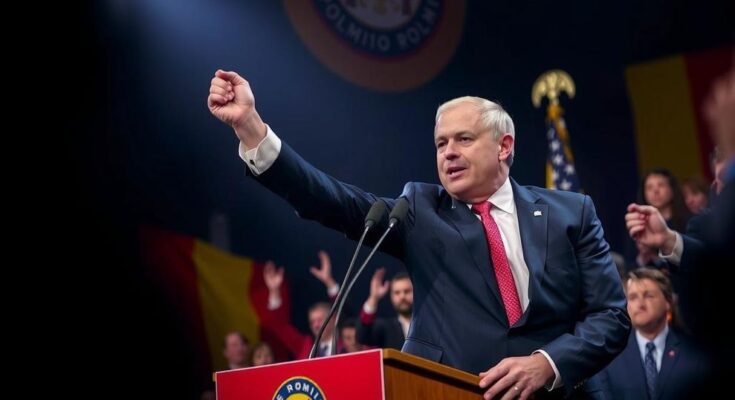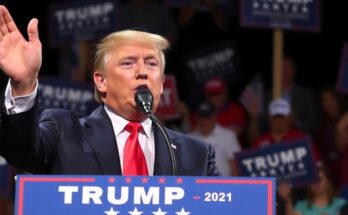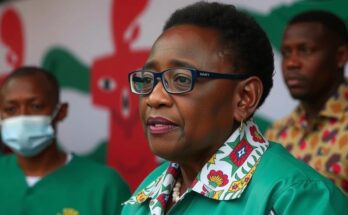Calin Georgescu, a hard-right populist, has shocked observers by leading Romania’s presidential election with nearly 23 percent of the votes, ahead of Prime Minister Marcel Ciolacu, who holds approximately 20 percent. Georgescu’s campaign, largely driven by social media due to minimal mainstream media coverage, emphasizes opposition to NATO and EU policies, raising questions about Romania’s political future amid economic concerns.
In a surprising turn of events, Calin Georgescu, a hard-right populist, has emerged as the frontrunner in Romania’s presidential race, challenging the country’s traditionally pro-European stance. With nearly 23 percent of the votes counted, Georgescu is ahead of incumbent Prime Minister Marcel Ciolacu, who garnered approximately 20 percent. The run-off is scheduled for December 8, 2023, following a period of low visibility for Georgescu in mainstream media, relying instead on social platforms like TikTok to engage voters. His platform includes strong opposition to NATO’s presence in Romania and calls for halting aid to Ukraine amid its ongoing conflict with Russia.
Georgescu’s ascent into a significant political position appears starkly contrasting to pre-election opinion polls, which suggested only a modest base of support. This shift has raised questions about Romania’s future political alignment and the potential influence of populist sentiments within the European context. His controversial statements regarding Romania’s historical figures and foreign policy raise significant discussions among experts about the repercussions of his potential presidency.
As Romania is an EU and NATO member, it shares a crucial border with Ukraine, which has greatly influenced its foreign policy. The nation has been a robust advocate for Ukraine, supplying military aid and expressing solidarity, especially in light of the region’s instability due to Russia’s military actions. Georgescu’s pronouncements challenge the established foreign policy framework that has guided Romania since its accession to these organizations.
The presidential election in Romania is conducted against a backdrop of growing economic concerns, particularly regarding the cost of living, which has become a central issue for voters. Historically, Romania has maintained a pro-Western foreign policy, but the rising popularity of figures like Georgescu indicates a shifting political landscape. His past affiliations with right-wing populist movements and his criticisms of the EU and NATO invite scrutiny and reflect broader trends occurring across Europe, where populism has gained traction. This election marks a crucial moment for Romania’s political trajectory amid increased tensions in Eastern Europe.
Calin Georgescu’s unexpected lead in Romania’s presidential election signals a potential shift in the nation’s political landscape, challenging its pro-European orientation. His campaign, which has drawn on populist sentiments and social media engagement, underscores a growing discontent among voters. The upcoming run-off against Prime Minister Marcel Ciolacu will be critical in determining Romania’s future direction, especially concerning its relationships with the EU and NATO, alongside its role in supporting Ukraine during ongoing conflicts with Russia.
Original Source: www.aljazeera.com




